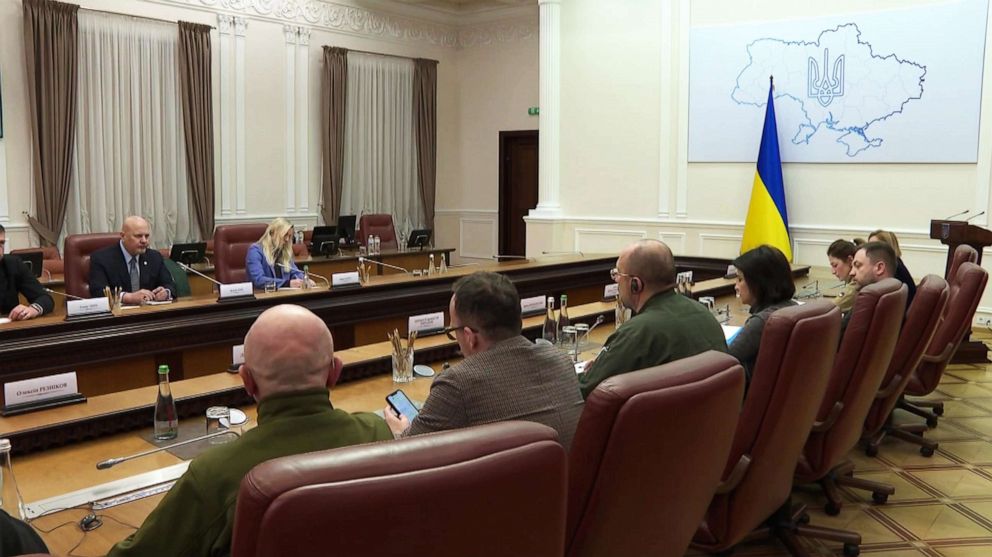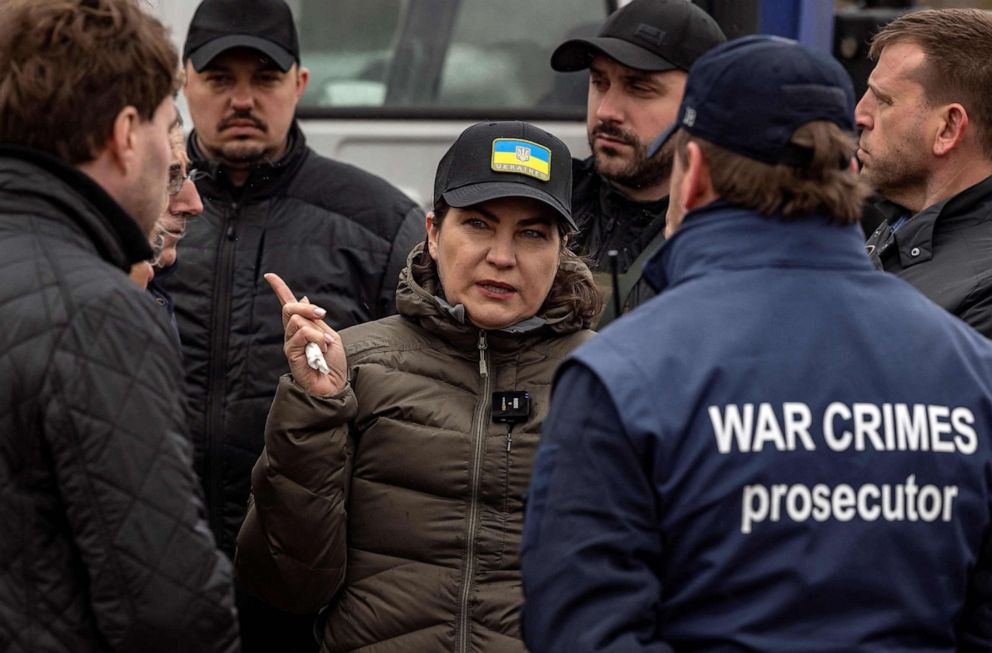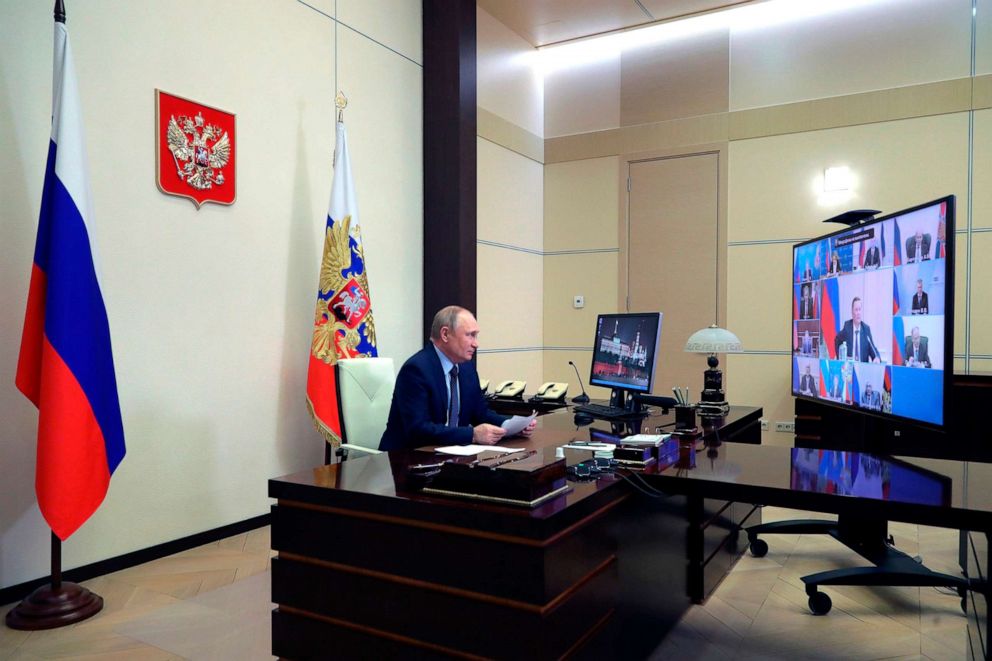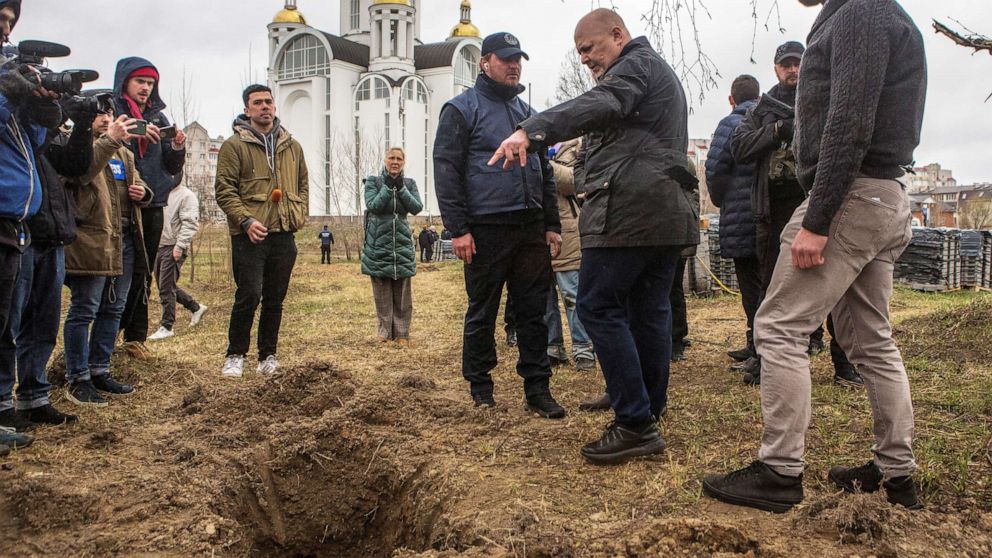What it takes to prosecute war crimes
As Russian forces retreated from northern Ukraine, atrocities were revealed and the U.S. and European countries accused Russia of committing war crimes.
Last month, the U.S. made a formal legal assessment that Russian forces have committed war crimes in Ukraine.
Ukrainian officials Friday said they found more than 900 bodies of civilians in the Kyiv region after Russian forces retreated, 350 of which were found in the town of Bucha.
Geoffrey Nice, a barrister who prosecuted former Serbian President Slobodan Milosevic in the International Criminal Tribunal for the former Yugoslavia, told ABC News it is obvious that war crimes are being committed in Ukraine.
"Without doubt. It's clear as conveyed from everything we're watching every day on television," Nice said.
In March, days after the war began, the International Criminal Court announced it is launching an investigation into possible war crimes committed in Ukraine. This story explains what it takes to prosecute war crimes.
What is a war crime?
War crimes are a part of the law of armed conflict, which governs fighting during war, and apply to all sides of an armed conflict, including armed forces and organized armed groups. These rules are laid out in the Geneva Conventions and their additional protocols.
Individuals could also be held responsible or prosecuted for serious violations of the law of armed conflict or a grave breaches of the Geneva Conventions, Tom Dannenbaum, an assistant professor of International Law at Tufts University's Fletcher School of Law and Diplomacy, told ABC News in an interview.

"These rules go all the way down the command chain, and indeed all the way up the command chain. ... Any individual from the lowest level physical perpetrator to the highest level commander is potentially implicated, or is at least governed by this law," Dannenbaum said.
These violations include attacking civilians and their structures, killings, cruel, inhuman, or degrading treatment, torture or sexual and gender-based crimes, such as rape, according to Dannenbaum.
Jurisdiction and forums for prosecution
There are several forums where war crimes can be prosecuted. In Ukraine, this includes the ICC, domestic courts and courts in countries that have universal jurisdiction.
Ukraine has consented to the jurisdiction of the ICC, which can prosecute four main crimes: genocide; crimes against humanity, including murder, rape, imprisonment, deportation and torture; war crimes that breach the Geneva conventions; and the crime of aggression.
In order for individuals to stand trial in the ICC, they must voluntarily consent to it or be handed over to the court. Russia does not recognize the jurisdiction of the ICC and is not required to hand over suspects who are indicted.
Domestic courts in Ukraine can prosecute war crimes since the crimes occurred within their territorial jurisdiction, and Russian courts can prosecute crimes involving their citizens, based on nationality jurisdiction.
Universal jurisdiction exists in some countries, including Australia, France and Germany, allowing them to prosecute individuals for crimes committed out of their territory. The individuals do not need to be citizens of the prosecuting country nor does the crime have to have been committed against its citizens.
"It asserts universal jurisdiction on the grounds that this particular crime is a crime that is of universal interest," Dannenbaum said.
The U.S. does not allow its courts to exercise universal jurisdiction.
Evidence gathering and investigating
Investigators divide evidence into two categories: crime based and linkage evidence, according to William Wiley, founder and executive director of the Commission for International Justice and Accountability, who has over 20 years experience in International Criminal and Humanitarian Law on the investigative and legal sides.
To collect crime based evidence, investigators gather basic facts like such as cause of death, or probable cause of death, time of death, and location of death, Wiley said.
"Crime based, for example, in the well known situation of Bucha, in Ukraine, would be the dead bodies, eye witnesses to the killing of those individuals," Wiley said.
Crime based evidence makes up a small portion of cases; "90% of the work in an international criminal investigation, the prosecution is focused on gathering and analysis of linkage evidence," Wiley said.
Investigators will be looking for "linkage evidence between those who performed the wrongful act on the ground and any other actors that are potentially going to be subject to investigation and prosecution, particularly those up the chain of command," Dannenbaum said.

Linkage evidence can include documents, documentary materials generated, communications, satellite imagery or insider witnesses. Investigators are looking for evidence that could establish intent.
Finding sufficient linkage evidence is the main challenge prosecutors and investigators face, Wiley said.
"What it takes to prosecute a war crime is a great deal of evidence because ultimately, war crimes cases are are brought against higher level perpetrators who need a great deal of linkage material and connect somebody in Moscow to offenses perpetrated in, for instance, Bucha," Wiley said.
But Ukraine appears to be gathering communications evidence "in considerable volumes ... because the Russian operational security appears to be extremely poor. They're not using frequently encrypted communications devices, certainly on the tactical and operational level," Wiley said.
Nice disagreed, and said there doesn't need to be a huge amount of evidence.
The war "was associated with war crimes right from the very beginning. Never been any doubt about that," said Nice.
He added, "There doesn't necessarily need to be a huge amount of evidence because it is so overwhelmingly clear."
Suspects are identified late in the investigative process. Investigators start by gathering evidence surrounding the perpetrating structures, then they link those crimes to a crime base, and finally they work toward identifying suspects, Wiley said.
"Ultimately, it's not Russia that is going to be put on trial ... it's individual suspects," Wiley said.
The legal principle of command responsibility states that commanders are responsible for the conduct their subordinates, Wiley said. This runs all the way up the command chain, including Russian President Vladimir Putin.
This rules out the possibility of higher ranking officials claiming they were unaware of the actions committed by their forces.
"For instance, in Bucha, this is not going to be an effective defense because the law of command responsibility imposes a requirement on commanders to be aware, at all times, of what their men are up to," Wiley said.
Could Russian forces and leadership face prosecution?
Experts agree that it is unlikely the highest-ranking officials will be prosecuted, but Russian forces could be.
There is a "fairly strong prospect" for Russian forces to be sent to trial because a number of them have been captured by Ukraine and because there is "an unprecedented level of international cooperation around gathering evidence, making sure it's preserved," Dannenbaum said.
Dannenbaum said countries are providing the ICC with additional resources, including financial support and investigative teams.

Wiley also thinks forces will be prosecuted.
"I don't think there's going to be a problem getting some Russian perpetrators into court. The fundamental question is, what ranks will they hold, or will they have held," Wiley said.
"However, there's a great many Russian soldiers, and paramilitary personnel connected to the Russian security intelligence services, who've been captured by the Ukrainians," Wiley said.
But the likelihood of Putin or other high-ranking Russian officials being prosecuted is not high.
"It's much less likely that those individuals will come into the custody of the jurisdictions that would seek to prosecute them. And Putin himself has an additional wrinkle, which is a concept called head of state immunity, which makes it difficult to prosecute Putin in domestic courts," Dannenbaum.
But he could be prosecuted in the ICC.
If there is regime change in Russia, he could be tried, Nice said.
"If there's a regime change in Russia, as there was in Serbia, which led to the former Serbian President being handed over, then he may be tried," Nice said.




